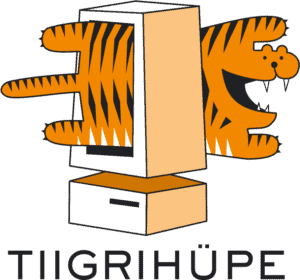Almost 30 years ago, Estonia’s government launched Tiigrihüpe, a revolutionary new investment in computer and network infrastructure.
Aside from having a wonderfully strange logo, Tiigrihüpe – or Tiger Leap – started a snowball of development for software in the newly-independent country; and education was no exception.
Estonia’s development, while not entirely under the radar, sprung up in the 2010s, and the country currently leads Europe in the amount of unicorns per capita.
Some 27 years later after Tiigrihüpe, Estonia is quickly becoming a European edtech powerhouse – so much so, EdTech Estonia was formed.
The organisation as it exists today has only been around for just shy of three years. While born in a pandemic, it is already making an impact, with 53 members at the latest count.
Its founders began the project in 2018 with support from the Estonian ministry of education, under the umbrella of Start-Up Estonia.
In 2020, it split away to its own faction and is now notably a private outfit, but still has a strong partnership with Estonia’s government.
Sabina Sägi, who works as a project manager for EdTech Estonia, tells The PIE that the seeds were being sown long before it was founded.
“Some of our board members have been around for 10 or 15 years [in the industry] because the first, big digital school management systems have been around since 2002. So we’ve been at it for quite a while,” she quips.
The organisation offers collaborative assistance through its membership, where companies can give each other tips and tricks on how to make the most of resources and ultimately project Estonia to edtech stardom across Europe – and the world.
DreamApply – a known software solution for admissions management, specialising in technology for student onboarding and admissions – actually comes out of Estonia. What’s more, its co-founder is also a co-founder of EdTech Estonia and its wider European counterpart, the Nordic EdTech Forum.
“[DreamApply] was a small dream to support young people to gain international experience,” Märt Aro tells The PIE.
“We saw stories of universities that were struggling with communication when candidates were coming from outside their country, as it’s a super complex process.
“For a normal human, it looks like there is a student and there’s a university and they kind of need to meet each other. But if you look at the back end of this work, then you see that there is around 50 different things that need to happen in order for it to function,” Aro adds.
This small dream turned into something big, with the company celebrating its millionth applicant in 2022.
DreamApply, like many other members of EdTech Estonia, started marketing towards Estonians first, but it seldom stays that way.
“If you become an EdTech Estonia member, usually you’re at the stage where you’re already looking towards export, because Estonia is such a small market,” Sägi points out.
It’s seen as a natural step to take with no stigma around keeping the organisation’s resources to oneself.
But EdTech Estonia sees that some companies will need help to take that leap.
“To bridge the gap between an idea and actually wanting to export, we’re trying to spearhead different types of events such as the hackathon and the co-creation program, to offer a valid kind of future generation coming up,” Sägi notes.
“If you become a member, usually you’re at the stage where you’re already looking towards export”
The hack, which is not as sinister as it may sound, offers mentor sessions, workshops, pitch training and more to members – and the co-creation program, together with Tallinn University, offers mentoring to edtech companies still working out the cogs from the institutions’ researchers.
The members, while mostly edtech, do cross over with other areas. Triumf Health, an educational and health-promoting wellbeing game created and led by Kadri Haljas, became one of the first EdTech Estonia members, seeing it for what it could be.
Triumf has expanded its operations throughout Europe – and while much of the work was already being done, Haljas could operate with the knowledge that EdTech Estonia is supporting its team.
“It’s a wonderful kind of umbrella organisation because first of all, it’s really led by the members so everyone has a say. There’s not particularly a hierarchy, it’s a very good ecosystem.
“It can help when working on those joint offers, for example, for export or for governments; it can provide lists of services and also what can be utilised in other countries that have also made sense here in Estonia,” Haljas tells The PIE.
While she lauds its current state, she does resent the fact it didn’t really market itself effectively in the first year or so.
“In the beginning, it hadn’t done much marketing and [members] haven’t been really able to to fully show our potential. I think that now the communication and marketing efforts have increased significantly… which is very encouraging,” Haljas explains.
On the horizon, Estonia’s problems closer to home might be beginning to rear their ugly heads.
The country is no stranger to skills shortages. In 2021, it was projected that in the coming years Estonia would be short 7,000 employees in its IT sector.
kood/Jõhvi, another member of EdTech Estonia, began operations all because of this exact problem.
“The need is about 1,100 extra people per year, and within Europe the problem is even more widespread.
“EdTech Estonia is a result of understanding that we cannot do everything ourselves”
“Founders and entrepreneurs have the problem that their own companies don’t have enough good developers, and the universities and vocational schools are not getting enough workforce into the field fast enough,” Antero Leedu tells The PIE.
The organisation is an Estonian-founded coding school based almost fully online, open to many countries around the world.
It aims to teach its students coding language and skills in a tight two-year time frame, but, if you’re really clever, you might even get it done in less.
Students range from people who stay full in their home country doing the course, to Estonians born and bred, to Estonian migrants looking to upskill themselves.
“Usually those are the same people who have seen the value in coming to Estonia and then are finding something good to do here,” Leedu says. Some students will indeed find a job after graduating, helping towards plugging a national skill shortage.
He says that at its core, EdTech Estonia and the network it provides has been invaluable.
“We have a community of different companies in Estonia that we can bounce ideas off – there’s real value there,” Leedu muses.
EdTech Estonia still has plenty to do. It is constantly recruiting members, Sägi says, and Aro continues to dream of Estonian collaboration leading to helping as many people as possible across the world access high quality education.
“EdTech Estonia is a result of understanding that we cannot do everything ourselves,” Aro explains.
“We need to empower many people to realise their dreams in improving education. As a result of that, teachers and learners will be empowered with solutions supporting them in those exact endeavours.
“Education is one of the most important sectors if we want to improve the life of everybody in the world. If our neighbour is doing better, actually, we are going to be doing better as well.”













